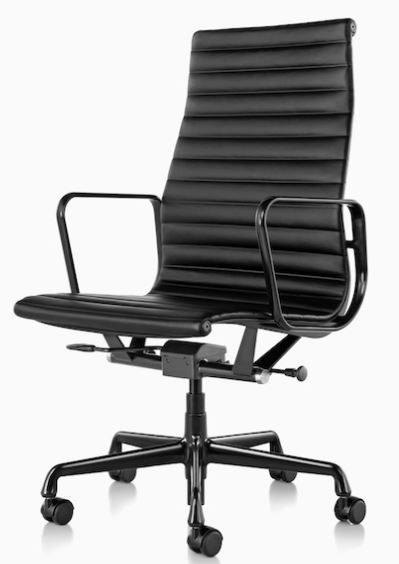UAE to Join the Madrid Protocol
In great news for companies that file trade marks internationally, the Government of the United Arab Emirates has agreed to join the Madrid Protocol from 28 December 2021.
Read MoreFull Federal Court Decision Reaffirms That There Is No Infringement By Authorisation Under Australian Trade Mark Law
The Full Court of the Federal Court of Australia has reaffirmed that a registered trade mark can only be infringed by the primary user of a trade mark and there is no concept of authorisation of infringement recognised under Australian trade mark law.
Read More“All Aboard” As Guerlain Departs From the Norm: The General Court of the EU Finds Distinctive Character in Boat Hull Shaped Lipstick Packaging
In what will be welcomed by innovative design brands, on 14 July 2021, the General Court of the EU handed down a decision annulling the EUIPO and Board of Appeal’s decisions that a mark filed by Guerlain lacked distinctive character. This decision emphasises that a distinctiveness assessment of a three-dimensional mark must be undertaken by reference to the specifics of common practice in the market for the relevant products.
Read MoreUnicolours v. H&M: Copyright Registration Validity
On June 1, 2021, the Supreme Court granted certiorari in the ongoing case of Unicolors v. H&M Hennes & Mauritz, L.P., No. 20-915. With a nearly $1 million copyright verdict on the line, pattern manufacturer Unicolors, Inc.’s (“Unicolors”) fate is now at the Supreme Court to decide whether courts should refer copyright registration validity challenges to the Copyright Office where there is a known misrepresentation in the registration, but no evidence of intent to defraud.
A copyright registration certificate is not valid if obtained by offering false information and that information, if known, would have resulted in the registration being denied. Under 17 U.S.C. §411(b)(2), where knowingly inaccurate information is included in an application for copyright registration, “the court shall request the Register of Copyrights to advise the court whether the inaccurate information if known, would have caused the Register of Copyrights to refuse the registration.”
Read MoreA Fair Use Tale, or All’s Well That Ends: the U.S. Supreme Court Holds Google’s Use of Java Code to Be a Fair Use under U.S. Copyright Law
By: Mark H. Wittow, Paul J. Bruene, Trevor M. Gates
On 5 April 2021, the U.S. Supreme Court resolved a major copyright dispute that had wound through the federal courts for over a decade. In a 6-2 decision written by Justice Breyer, the Supreme Court held that Google’s copying of roughly 11,500 lines of declaring Java code for Google’s mobile Android platform was a fair use as a matter of law and thus not copyright infringement. The decision addresses the application of copyright law to software and updates and extends the Supreme Court’s copyright fair use jurisprudence. Read our recent client alert here.
Amendments to China’s Copyright Law
The first substantial amendments to China’s Copyright Law in 20 years were passed in November 2020 and will come into effect on 1 June 2021 (the Amendments). The Amendments primarily focus on enhancing protections for copyright owners, better aligning China’s Copyright Law with international standards, and implementing the Beijing Treaty on Audiovisual Performances that entered into force in April 2020.
The heavy deterrence-related focus of the revised Copyright Law will strengthen protections for copyright owners, particularly relating to digital piracy.
Read MoreRiding on Coat-tails, Doesn’t Come Free: UK High Court Awards Additional Damages for Oh Polly’s Flagrant Infringement of House of CB’s Unregistered Design Rights
On 24 February 2021, the UK High Court found that a number of Oh Polly dress designs had infringed the unregistered design rights of its competitor, House of CB. This recent decision confirms the risk of additional damages being awarded if infringers flagrantly copy third party designs, whilst also confirming the difficulties brand owners face in bringing passing off actions based solely on copycat designs.
Read MoreLove Island’s Molly-Mae Hague breaches the UK Advertising Standards Authority promotion rules
An £8,000 Instagram giveaway promoted by Love Island contestant Molly-Mae Hague, breached the UK Advertising Standards Authority’s (ASA) promotion rules, a recent decision of the ASA has determined.
In September 2020, Ms Hague (who has more than 5 million followers on Instagram, and 1.5 million subscribers on YouTube), offered one of her followers the chance to win approximately £8,000 worth of luxury designer goods, including handbags, a laptop and products from her fake tan range. To enter, her followers were asked to like the Instagram post, tag a friend and follow her personal Instagram page, the Instagram page of her tanning brand and to subscribe to her YouTube channel.
The Instagram post in question was liked close to 1.2 million times and attracted almost 3 million comments.
After the giveaway, the ASA received 12 complaints from individuals who believed that not all of the entrants were included in the ‘final draw’ and so did not have an equal and fair chance of winning. The complainants challenged whether: (i) the prize was awarded in accordance with the laws of chance; and (ii) the promotion was administered fairly.
Read MoreWhen Is an Office Chair Design Famous? U.S. Supreme Court Won’t Hear Herman Miller’s Trade Dress Appeal Regarding the Eames Chair
The U.S. Supreme Court decided not to take up Herman Miller, Inc.’s appeal from a Ninth Circuit holding that partially overturned a jury verdict and held that Herman Miller’s popular Eames office chair (average retail price US$1,200) is not “famous” enough to qualify for trade dress dilution protection.[1] The Supreme Court’s denial of Herman Miller’s petition means the Ninth Circuit’s decision will stand.

